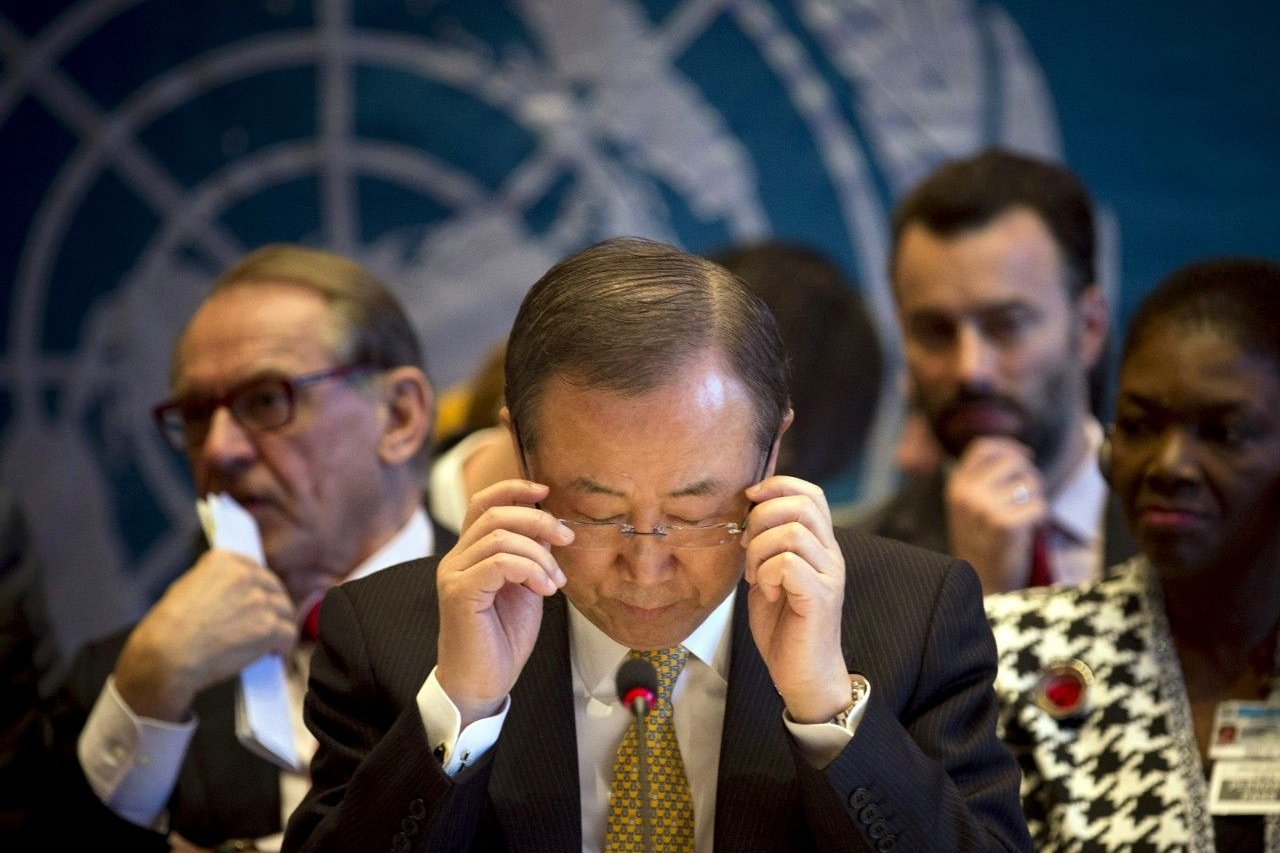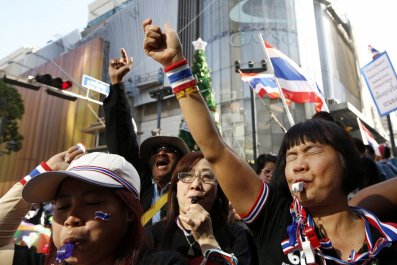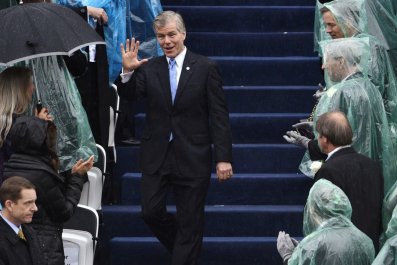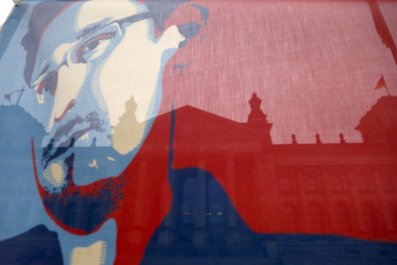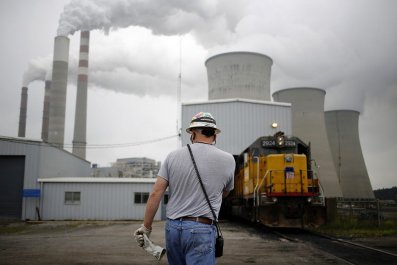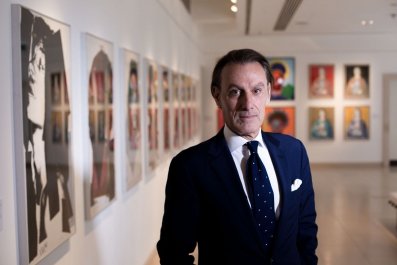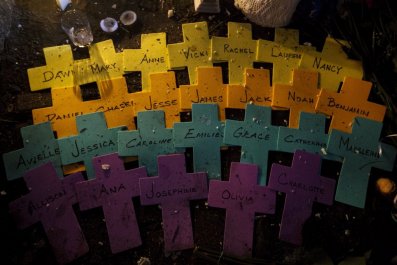This week's near-fiasco about who should be invited to the Syrian peace talks in Montreux, Switzerland, that resulted from a private telephone conversation between the United Nations Secretary General Ban Ki-moon and Iran's Foreign Minister Mohamad Javad Zarif, has served a purpose.
The embarrassing on-again, off-again invitation helps to understand how to deal with the likely pitfalls that will emerge in future diplomacy with Tehran over its nuclear ambitions.
Ban nearly derailed the most important diplomatic initiative of his tenure as U.N. chief when he announced Sunday that Zarif had agreed to terms that would allow Iran to participate in the international conference on Syria designed to bring an end to the civil war there. The U.N. chief announced that Tehran's representatives would be invited to the talks in Switzerland that opened Wednesday.
Less than 24 hours later, however, Tehran officials explicitly denied they had ever agreed to "preconditions." The result was that a red-faced Ban was forced to disinvite Iran and Zarif and Hassan Rouhani, the Iranian president who this week advocated "constructive engagement" with the West, who were politically weakened at home by the confusion. And Iran's incentive to intensify the war against opponents of Syrian President Bashar al-Assad grew, making any prospect of a ceasefire in Syria that much harder.
A veteran Arab diplomat at the U.N. likened Sunday's private phone call between Ban and Zarif, which led the U.N. chief to believe that Iran was on board, to miscommunication between two lovers. "One thought he heard a wedding proposal, the other only extended an invitation for tea," said the diplomat, who asked not to be named.
Such misunderstandings can be expected over other negotiations with Iran. On Wednesday, Zarif challenged Washington, telling CNN that the White House is "exaggerating" and that it "overplays" the commitment Iran has made over its nuclear program in a partially secret agreement with six top powers.
"We did not agree to dismantle anything," Zarif said, directly contradicting statements made by President Obama on the November 24 agreement, which went into effect on Monday. (Certain clauses it contained were not publicly disclosed.)
Also on Monday, the U.N. Secretary General's office on the 38th floor of the U.N. building in New York went into emergency mode trying to salvage the talks in Montreux. Scheduled to start just two days later, the long-planned conference, known as Geneva 2, was on the verge of collapsing and threatened to take with it Ban's reputation.
Diplomats from some of the leading countries at the U.N. tell me Ban's Sunday invitation for an additional nine countries -- including Iran and the Vatican -- to attend Montreux took them completely by surprise. U.N. officials insist they had extensively consulted with American and other diplomats in advance. But if so, it was done, like Ban's talk with Zarif, very privately.
By Monday, Washington was demanding Ban rescind the invitation to Iran - unless Tehran, in a public statement, agreed to distance itself from Assad. Such an Iranian statement was never likely to be forthcoming.
"The Iranians don't have an option in Syria that's not Assad," explained Tony Badran of the Foundation for Defense of Democracies, who closely follows Lebanon and Syria. Dismissing past reports, which contended that Iran may help to find an alternative to Assad, perhaps among his fellow Alawites, Badran said, "There is no such thing. There is no alternative power."
That, however, was not what Ban heard from Zarif in their phone talk Sunday. "Foreign Minister Zarif and I agree that the goal of the negotiations is to establish, by mutual consent, a transitional governing body with full executive powers" in Syria, Ban said.
The idea of a transitional governing body derives from an agreement reached in June 2012 in Geneva, where Russia, the United States and some of Syria's neighbors met for a conference known as Geneva 1, which Iran did not attend.
As Secretary of State John Kerry made clear again on Wednesday, America, as well as the majority of the more than 40 participants at Montreux, interpret the 2012 agreement to mean an end to Assad's rule in Syria. "Every country and every entity here, with one exception, supported the Geneva 1 communiqué," Kerry told reporters at the conclusion of the gathering in Montreux.
But that one note of dissent, of course, came from the Syrian government that had earlier announced that Assad intends to run for re-election in a poll scheduled for later this year. On Thursday, Rouhani concurred with Damascus, telling an economic gathering in Davos that only Syrians can elect their leader.
Russia is one of the countries that signed the 2012 communiqué, and, along with America and the U.N., it sponsored Wednesday's Geneva 2 and the diplomacy that followed. But, like Syria and Iran, Moscow's interpretation of the 2012 agreement differs from Kerry's, contending that nothing in it insists upon the ousting of Assad. Russian diplomats note that the Geneva 1 communiqué doesn't even mention Assad by name.
But in the current environment in Tehran, where the subject of diplomacy with the West is in itself a matter of fierce public debate, such flexibility is more difficult to attain than in places like Moscow.
As soon as Ban's interpretation of his conversation with Zarif reached Iran, press outlets affiliated with the Revolutionary Guards and Supreme Leader Ali Khamenei went on the attack and soon enough Iran made its position clear.
"Iran does not accept any preconditions for its participation in Geneva 2 conference," Tehran's U.N. ambassador, Mohammed Khazee, emailed to U.N. reporters midday Monday. "If the participation of Iran is conditioned to accept Geneva I communiqué, Iran will not participate."
Later that day, when Ban took back Iran's Montreux invitation, Iranian media outlets that oppose engagement with the "great Satan," which is the United States, as espoused by Rouhani and Zarif, used the incident to show how the West cannot be trusted - neither on Syria, nor in the nuclear negotiations.
Tehran's leadership is more or less united on retaining as much of its nuclear program as it can while removing as many as possible of the global sanctions that choke its economy. But there is a major debate over what strategy would best achieve that end.
According to Menashe Amir, the director of Israel Radio's Farsi service, who closely follows Iranian politics, the pro-engagement side, led by Rouhani, argues the economy will collapse unless Iran continues to make concessions on the nuclear issue, which the hard-liners fiercely oppose.
Those hard-liners, who include the Revolutionary Guards and are close to Khamenei, maintain that as Iran has managed to survive despite Western sanctions, it will continue to prosper even as it defies the West on the nuclear issue. It opposes any real concessions.
As the agreement made between Iran and the U.S. and the other five world powers came into effect Monday, the headline in one news outlet affiliated with the hard-liners, Vatan Emrouz, was "Nuclear Holocaust," noted Amir. "Can you imagine, using that word and comparing the agreement to an event that Iran has consistently denied even existed?" he said.
Such fierce debate underlines the complexity of Iran's decision-making process.
The lesson of this week's phone call between Ban and Zarif is that there is a difference between "oral assurances that are given, maybe, to you, and you, maybe, hear what you want to hear in them, versus what the Iranians actually do and what they actually believe in," said Badran.
It is also that major national security decisions over Syria and nuclear enrichment are ultimately made by Khamenei and the Revolutionary Guards, who can very quickly and decisively overrule any assurances given by the likes of Zarif - and even, for that matter, Rouhani.
Follow Benny Avni on Twitter: @bennyavni


